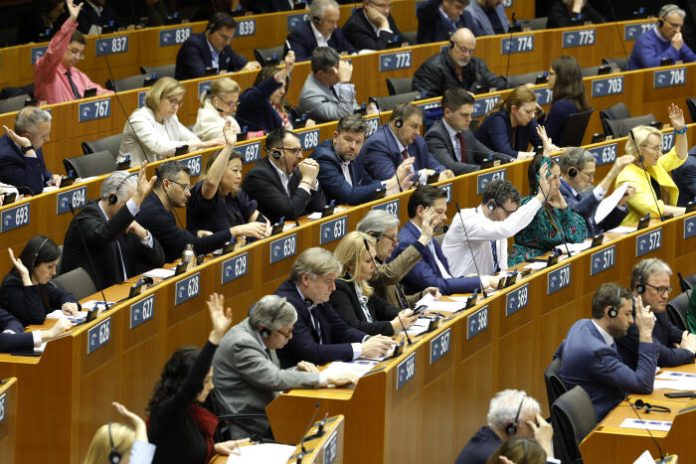Partnerships with countries of origin and transit are the next step in EU leaders’ plan to reduce migration inflows amid ratification of a large-scale migration reform, according to Euractiv.
Parliament ratified the Asylum and Migration Pact on Wednesday (March 10) amid controversy and concerns. Aside from a complicated two-year implementation period, now that internal migration management has been resolved, EU leaders want to step up efforts to finalise agreements with neighbouring states in North Africa and the Middle East to stem the flow of incoming migrants.
If current Commission President Ursula von der Leyen is given another term, this will be one of her top priorities, despite negative reactions from EU parliamentary groups and civil society.
“In parallel [to the Migration Pact implementation], we will also press ahead with our work partnerships with countries of origin and transit so that we can address the root causes of migration together.”
So far, the EU has concluded agreements with Tunisia, Mauritania and Egypt that provide for large sums of money to help the countries control migration flows.
Starting in July, the Hungarian presidency of the EU Council will be responsible for brokering agreements between EU countries and setting the political agenda, including tackling external borders and third countries.
Some officials have also mentioned including the Sahel countries if the region becomes more stable. However, these agreements have been criticised by left-wing forces, as well as some liberals and parts of the European People’s Party (EPP), who do not consider Egypt and Tunisia to be countries that guarantee respect for human rights.
Meanwhile, the EPP has promised in its election manifesto to go a step further and adopt the controversial British model of Rwanda, under which asylum seekers are sent to third countries for processing.
Italy and Albania struck an agreement in late 2023 under which migrants will be processed in the western Balkan country before being transferred to Italy or sent home after their applications are decided. While the agreement differs from the “Rwanda model,” it has led other countries, including Austria, to say they may consider similar ideas.
Ahead of Parliament’s vote on the migration pact, leading negotiators on the law, including liberal MEP Sophie in’t Veld, criticised the Commission’s agreements with third countries.
Throwing money at dictators is not migration policy.
Socialist MEP Matjaž Nemec stated that the deals “are against the European values.”
“Are we helping the people, or are we helping the regime? Are they fully aligned with the human rights values? I don’t think so. So it’s going to be a big challenge for us, European Parliament, to reopen this kind of debate in the next term.”
